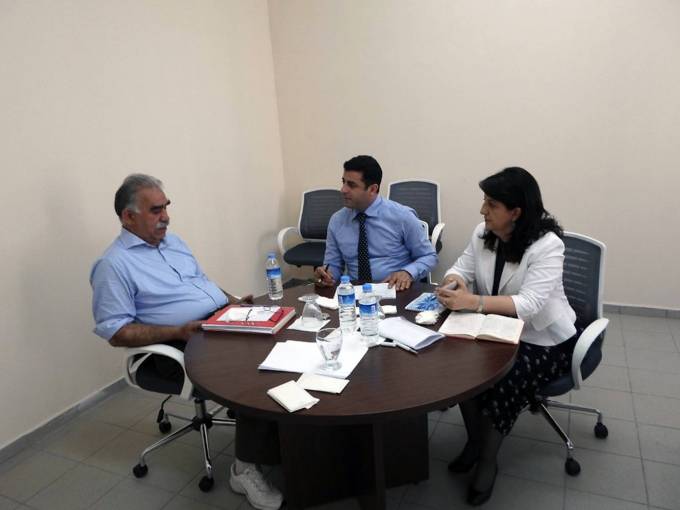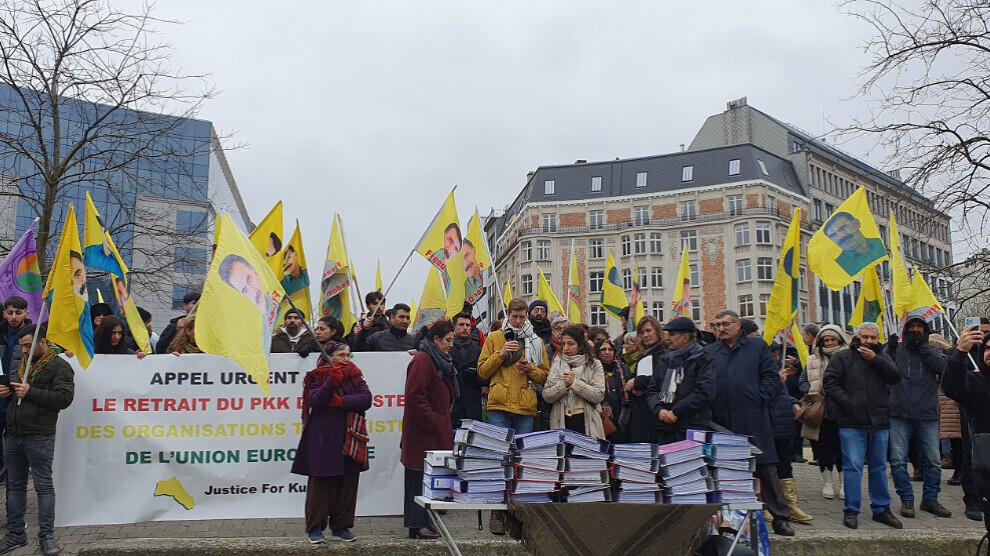Adem Uzun
There have now been almost forty years of war between the Kurdish movement in Turkey as represented by the Kurdistan Workers’ Party (PKK), and the Turkish authorities. There have always been obstacles to finding an end to this war, mostly imposed by the Turkish authorities. Successive Turkish governments have wasted every positive step towards a solution taken by the Kurdish side. They have kept Kurdish leader Abdullah Öcalan under total isolation for nearly three years and have used the designation of the PKK as an excuse to promote racism and prevent peace.
Read Adem Uzun's insightful opinion piece now to discover how Abdullah Ocalan's involvement could potentially speed up a solution.
🌍https://t.co/ydfokkWUHK pic.twitter.com/8N3ELu1PGm
— MedyaNews (@1MedyaNews) August 19, 2023
The designation of the PKK as a terrorist organisation is a political decision, not a legal one. The PKK was first listed as a banned organisation in Europe in 1993, when Turkey’s war against the Kurds was at its height. Millions of IDPs and refugees fled, including into Europe, where Turkey also spies on and kills dissidents, and tries to restrict protest and political activity. The Kurds who fled as refugees won political support from European citizens, and so these European countries designated the PKK in order to destroy this support.
The PKK has never threatened Europe or its people. It even defended Europe, by defeating ISIS in Iraq. But the decision to list the PKK as a terror organisation allows Turkey to claim it cannot negotiate with the Kurdish movement – despite the fact the Belgian Court of Cassation recently found that the PKK should be considered a legitimate party to a civil conflict in Turkey.
Smearing the Kurdish movement as ‘terrorists’ only contributes to the persecution and demonisation of all Kurdish people. Peace requires public support and open dialogue, and political engagement between different groups and peoples, which cannot occur if the key interlocutors are criminalised.

I myself have experienced this criminalisation first-hand. I, as a facilitator, and other Kurdish representatives engaged in the Oslo peace talks and ‘shuttle diplomacy’, with continued face to face meetings until 2011 – when all of a sudden, we saw ourselves sanctioned and labelled. After the collapse of the Oslo talks, I was arrested in Paris on fabricated charges. Not only did I win my case, but I was offered compensation for how I had been treated—which I refused. Turkey’s strategy of trying to smear all Kurdish representatives as criminals has only escalated. Today, as Turkey uses the NATO accession process to demand anti-Kurdish concessions from European states, that strategy threatens the fundamental freedom of speech and assembly enjoyed by all Europeans.
There are other lessons to be learned from these previous bouts of peace talks. Erdoğan was opportunistic and pragmatic, and afraid of growing Kurdish political power. He wanted to use the previous peace negotiations to marginalise his opponents in Turkey, and to empower himself within the Turkish system in the military, judiciary, and legislature, as well as to secure political and economic support from the international community. He sought to present himself as needing support from the European Union and the West in order to pursue peace, as well as seeking the domestic support of 20 million Kurds.
Erdoğan was partially successful in these aims. He took over the state and marginalized his opponents—but he couldn’t succeed in getting the Kurds to vote for him. Rather, the Kurds voted for the HDP in record numbers. This made Erdoğan afraid, and so he brought an end to the peace process, because it was no longer to his advantage.
Kurdish achievements in Syria, where a Kurdish-led, multi-ethnic coalition defeated ISIS and other Islamist forces, also threatened his expansionist plans. Erdoğan needed the fight against the Kurds in order to justify his expansionist policies, and so, just after the end of the peace talks, we saw the start of new cross-border military operations and de facto occupations of both northern Syria and Iraq.
Despite this, the Kurds have always been sincere about peace and willing to sit down for a chance at gaining rights for our people. In particular, the participation of the jailed Kurdish political leader Abdullah Öcalan led to unprecedented success – for example, he was able to call for a ceasefire which lasted for almost two years until this agreement was broken by Turkey. Without Öcalan’s involvement or agreement, there are no realistic prospects for any process.

Every peace process needs mediation and observation. A third party or parties must mediate and observe and guarantee all the proposed political reforms. International pressure is always very important to keep the negotiations alive.
Those countries serious about peace should recognize Öcalan as a lead negotiator and pressure Turkey to follow its own laws, allow Öcalan to communicate with his family and lawyers, and ultimately facilitate his freedom to participate in the pursuit of a political solution. As Öcalan has repeatedly said, if he had the chance to be freely involved in negotiations, he could solve the Kurdish question within a week.
* Adem Uzun is a founding member and envoy for the Kurdistan National Congress (KNK), which is based in Europe.










